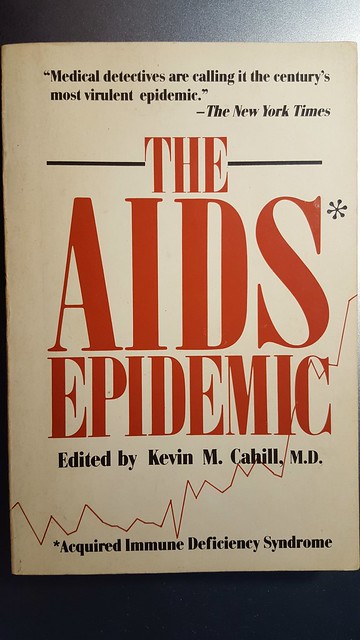
As of mid-April 1983, 1,339 people have been diagnosed as having AIDS. Five hundred and five cases were fatal. In New York City alone, there have been 595 cases, with 228 deaths. But even as the disaster escalated, the organized medical community was strangely absent. When a fatal infection had struck down veterans [34 deaths] attending an American Legion convention [1976, Philadelphia], health professionals around the country joined in the search for a solution [later identified as Legionella]. When women using tampons became ill with toxic shock syndrome [1980, though TSS was first described in 1978], medical societies and research centers immediately focused their enormous talents on the problem. But when the victims were drug addicts and poor Haitian refugees and homosexual men, their plight did not, somehow, seem as significant to those expected to speak for the health professions. No major research programs were announced, and until it became clear that the disease would spread to the general population through blood transfusions, organized medicine seemed part of the curious conspiracy of silence.Yesterday, there was this:
- "Preface: The Evolution of an Epidemic" by Kevin M. Cahill, M.D., editor, "The AIDS Epidemic"
It may be hard for your viewers to remember how difficult it was for people to talk about HIV/AIDS back in the 1980s, and because of both President and Mrs. Reagan — in particular Mrs. Reagan — we started a national conversation, when before nobody would talk about it, nobody wanted to do anything about it, and that, too, is something I really appreciate with her very effective low-key advocacy. It penetrated the public conscience and people began to say, “Hey, we have to do something about this too.”"Started a national conversation" my ass. Neighbors, friends, boyfriends, lovers died around me. My community was being expunged. We were all expendable people. I knew exactly what was going on - they WANTED us to die.
- Hilary Clinton, speaking to MSNBC at Nancy Reagan's funeral, 2016-03-11
Update, 2016-03-13: Late on Saturday, after I wrote this post, Hillary Clinton apologized for her apology, and her original "mis-spokement".
Related Content
Grief & Gardening #1: 1, 5 and 25, 2006-09-04In the Shadow (How shall my heart be reconciled to its feast of losses?), 2007-08-28
David Joseph Wilcox, 1957-1996, 2008-01-22
Names, World AIDS Day, 2009-12-01
One Score Years Ago, 2016-01-21

No comments:
Post a Comment